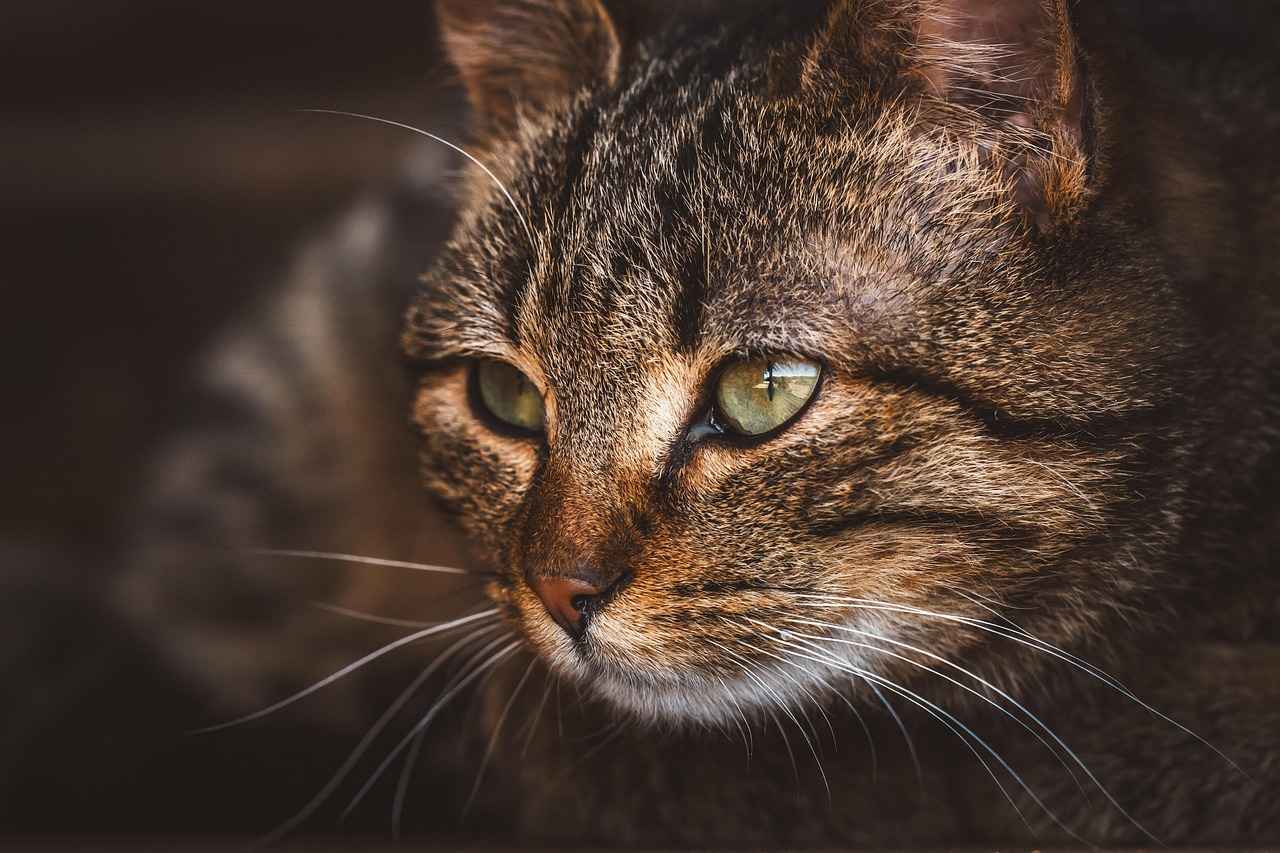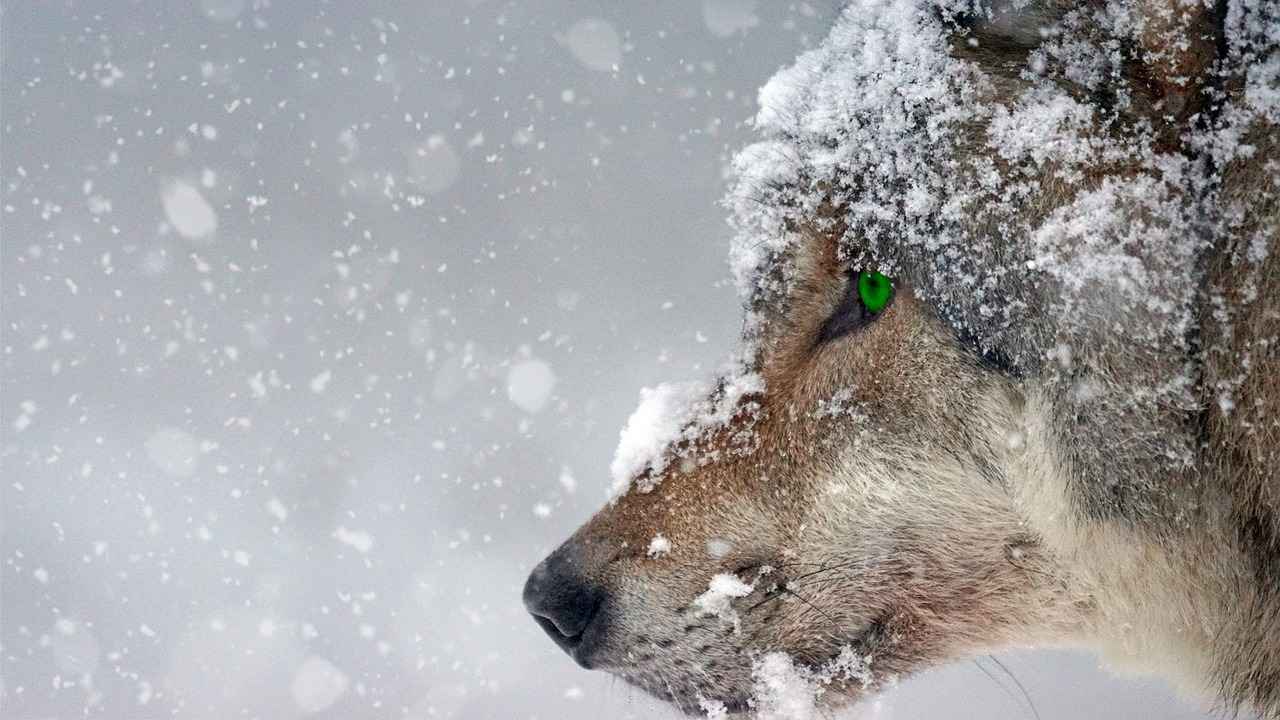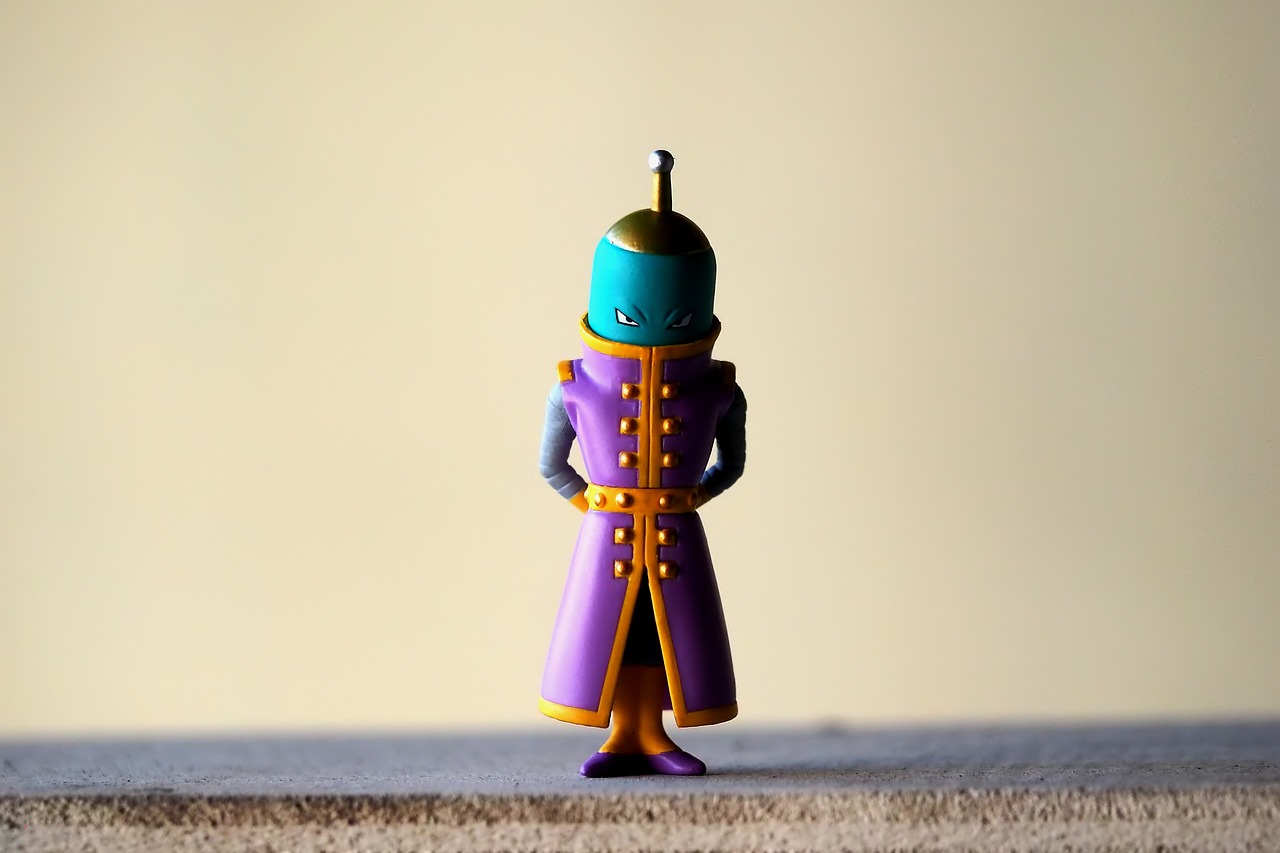This article delves into Legoshi’s character complexities in Beastars, exploring his internal conflicts, relationships, and the societal pressures he faces as a wolf in a world of carnivores and herbivores.
The Duality of Legoshi’s Nature
Legoshi embodies the struggle between his predatory instincts and his empathetic nature, creating a compelling inner conflict that drives his character development throughout Beastars. His journey reflects a profound exploration of identity, challenging the stereotypes associated with carnivores.
Relationships That Shape Legoshi
- The Impact of Haru on Legoshi: Haru represents both temptation and vulnerability for Legoshi, challenging his views on love and acceptance while highlighting his insecurities as a carnivore.
- Haru’s Role as a Catalyst: Haru’s presence in Legoshi’s life acts as a catalyst for his self-discovery, pushing him to confront his fears and desires in a complex emotional landscape.
- Legoshi’s Struggle with Acceptance: Legoshi’s relationship with Haru forces him to grapple with societal expectations and his own identity, leading to a deeper understanding of love and acceptance.
The Influence of Louis on Legoshi
Louis serves as a foil to Legoshi, representing the pressures of societal hierarchy and the expectations placed on carnivores, which complicates Legoshi’s self-image. Their interactions highlight the tension between personal ambition and societal roles.
Societal Pressures and Their Effects
- Prejudice in the Animal Kingdom: The discrimination between carnivores and herbivores creates a backdrop for Legoshi’s struggles, influencing his interactions and internal conflicts throughout the series.
- Legoshi’s Search for Identity: Legoshi’s journey is marked by his quest for identity amidst societal expectations, highlighting the challenges of being true to oneself in a divided world.
The Evolution of Legoshi’s Character
Legoshi’s character arc illustrates profound growth, showcasing his transformation from a timid wolf to a more self-aware individual, ultimately embracing his complexities.
From Timidity to Courage: Legoshi’s evolution from a fearful character to one who confronts his challenges head-on exemplifies the theme of personal growth in Beastars. His journey is a testament to the power of self-acceptance.
Embracing Complexity: By the series’ end, Legoshi learns to embrace his multifaceted nature, symbolizing the importance of self-acceptance and understanding in navigating life’s complexities.

The Duality of Legoshi’s Nature
Legoshi’s Inner Struggles: Why He’s the Most Complex Character in Beastars
In the world of Beastars, Legoshi stands out as a character who embodies the intricate dance between his predatory instincts and his deeply ingrained empathetic nature. This duality is not merely a backdrop for his story; it is the very essence that drives his character development and shapes his interactions with others.
Legoshi’s character is a fascinating study of contrasts. As a wolf, he is naturally predisposed to hunt and assert dominance, yet he is also characterized by a profound sense of compassion and understanding towards those around him. This internal conflict creates a compelling narrative that resonates with audiences, highlighting the struggles between instinct and morality. The tension between his predatory urges and his desire for connection serves as a catalyst for his growth throughout the series.
In many instances, Legoshi’s empathetic side leads him to question the societal norms that dictate how carnivores and herbivores should interact. His interactions with characters like Haru and Louis further illustrate this struggle. Haru, a small herbivore, represents both a challenge and a source of comfort for Legoshi, pushing him to confront his fears and desires. Conversely, Louis embodies the pressures of societal expectations, often leading Legoshi to reflect on his own identity and place within the animal hierarchy.
Embracing Complexity
Ultimately, Legoshi’s journey is one of self-discovery. He learns to embrace his complexities, realizing that both his predatory instincts and his empathetic nature are integral parts of who he is. This evolution from a timid wolf to a self-aware individual not only enhances his character but also serves as a mirror for the audience, encouraging them to reflect on their own struggles with identity and acceptance.
In conclusion, Legoshi’s duality is not just a character trait; it is a profound exploration of the human experience, making him one of the most compelling figures in Beastars.

Relationships That Shape Legoshi
In the intricate world of Beastars, the relationships that Legoshi forms with key characters like Haru and Louis play a pivotal role in his development. These connections not only challenge his views on identity and society but also push him toward significant personal growth.
- Haru: The Symbol of Vulnerability and Desire
Haru, a small herbivore, represents a complex mix of vulnerability and strength. Her relationship with Legoshi forces him to confront his predatory instincts while exploring the depths of love and acceptance. As Legoshi navigates his feelings for Haru, he learns to embrace his emotions, which leads to a profound transformation in his character.
- Louis: The Embodiment of Societal Expectations
In contrast to Haru, Louis embodies the societal pressures that dictate the behavior of carnivores. As a charismatic and ambitious deer, he represents the expectations placed on Legoshi as a wolf. Their dynamic highlights Legoshi’s internal struggle between conforming to societal norms and staying true to his own identity.
Both relationships serve as a mirror for Legoshi’s own insecurities and desires. Through his interactions with Haru, he learns about vulnerability and the importance of emotional connection, while his relationship with Louis challenges him to question the rigid structures of their society.
Ultimately, these relationships are not just about external connections; they are crucial to Legoshi’s journey of self-discovery. By understanding and navigating these complex dynamics, he begins to reconcile his predatory nature with his empathetic side, leading to a more nuanced understanding of himself in a divided society.
In conclusion, the relationships Legoshi forms with Haru and Louis are instrumental in shaping his character. They challenge him to confront his fears, embrace his complexities, and ultimately grow into a more self-aware individual in a world fraught with prejudice and expectation.
The Impact of Haru on Legoshi
is a crucial aspect of Legoshi’s character development in Beastars. As a complex character, Legoshi navigates a world filled with societal expectations and personal insecurities, and Haru plays a significant role in this journey.
Haru is not just a love interest; she embodies both temptation and vulnerability for Legoshi. Her presence in his life challenges his preconceived notions of love and acceptance, forcing him to confront his own identity as a carnivore. This relationship highlights Legoshi’s internal struggles, as he grapples with the duality of his nature—his predatory instincts versus his deep-seated empathy.
Through his interactions with Haru, Legoshi begins to question the societal norms that dictate how carnivores and herbivores should interact. Haru represents a challenge to these norms, pushing Legoshi to explore his emotions and desires in a way that he has never done before. This dynamic is pivotal, as it propels Legoshi into a journey of self-discovery and acceptance.
| Key Themes | Description |
|---|---|
| Temptation | Haru represents the allure of love that Legoshi yearns for, despite his fears. |
| Vulnerability | Haru’s own insecurities mirror Legoshi’s, creating a bond based on mutual understanding. |
| Societal Norms | Their relationship challenges the traditional boundaries between carnivores and herbivores. |
Legoshi’s relationship with Haru ultimately forces him to confront his fears of acceptance and rejection. As he navigates his feelings for her, he learns to embrace his complexities, recognizing that love can transcend the barriers set by society. This evolution is not just about romantic feelings; it is about understanding oneself in a world that often dictates who we should be.
In conclusion, Haru serves as a catalyst for Legoshi’s growth, compelling him to face his vulnerabilities and redefine his understanding of love. Their relationship is a beautiful representation of the struggle for acceptance and the journey toward self-discovery in a divided world.
Haru’s Role as a Catalyst
In the intricate tapestry of Beastars, Haru plays a pivotal role in the development of Legoshi, serving as a significant catalyst for his journey of self-discovery. Her presence in his life compels him to confront not only his fears but also his deepest desires, setting the stage for a profound emotional exploration.
Legoshi, a wolf navigating a world fraught with societal expectations, often finds himself torn between his predatory instincts and his empathetic nature. Haru, being a small herbivore, represents both a temptation and a challenge for him. Their relationship forces Legoshi to question the very essence of his identity. Can a carnivore truly love a herbivore without succumbing to his primal urges? This question looms large in his mind, pushing him to reevaluate his understanding of love, vulnerability, and acceptance.
Through his interactions with Haru, Legoshi begins to dismantle the barriers erected by societal norms. He learns to embrace his emotions, navigating the complex emotional landscape that comes with falling in love. Haru’s unwavering spirit and her own struggles with acceptance resonate deeply with Legoshi, encouraging him to confront his insecurities. This dynamic not only enriches his character but also highlights the broader themes of identity and acceptance prevalent throughout the series.
Ultimately, Haru is not just a love interest; she is a mirror reflecting Legoshi’s internal battles. Her influence catalyzes a transformation within him, guiding him toward a path of self-acceptance and understanding. As he grapples with his duality, Legoshi’s journey becomes a rich narrative of personal growth, illustrating how relationships can profoundly shape our understanding of ourselves.
Legoshi’s Struggle with Acceptance
is a profound theme in the narrative of Beastars, highlighting the character’s internal battles and the societal pressures that shape his identity. As a wolf navigating a world divided between carnivores and herbivores, Legoshi’s relationship with Haru serves as a critical lens through which he examines his own nature and the expectations placed upon him.
Legoshi’s connection with Haru challenges the norms of their society. As a carnivore, he grapples with his predatory instincts, which often conflict with his empathetic disposition. This duality creates a rich tapestry of emotions, forcing Legoshi to confront his fears and desires. Through his interactions with Haru, he learns that love is not merely a biological impulse but a complex emotion that requires understanding and acceptance.
Haru acts as a catalyst for Legoshi’s self-discovery. Her vulnerability and strength compel him to reflect on his own insecurities and societal roles. This relationship pushes him to question the prejudices that dictate his actions and beliefs. Legoshi’s journey is one of personal growth, as he learns to embrace both his predatory instincts and his capacity for compassion.
Moreover, Legoshi’s struggle with acceptance is not just personal; it mirrors the broader societal issues of discrimination and identity. The stark dichotomy between carnivores and herbivores creates a backdrop that amplifies his internal conflicts. As he navigates these challenges, Legoshi’s relationship with Haru becomes a symbol of hope, representing the possibility of bridging divides and fostering understanding in a fractured world.
In conclusion, Legoshi’s evolution throughout Beastars illustrates that acceptance is a journey fraught with challenges. His relationship with Haru not only deepens his understanding of love but also serves as a reminder that embracing one’s identity, in all its complexities, is essential for personal growth and societal harmony.
The Influence of Louis on Legoshi
In the intricate world of Beastars, the character of Louis plays a pivotal role in shaping the protagonist Legoshi’s journey. As a charismatic and ambitious deer, Louis embodies the pressures of societal hierarchy that exist between carnivores and herbivores. His character serves as a foil to Legoshi, pushing him to confront his own identity and the expectations placed upon him as a carnivore.
Louis’s position within the societal structure of Beastars is marked by his desire to rise above the limitations imposed upon him. He represents the ideal that many carnivores aspire to achieve, yet his struggle with the weight of these expectations complicates his relationship with Legoshi. As a leader of the drama club, Louis’s confidence contrasts sharply with Legoshi’s introspective nature, highlighting the internal conflicts both characters face.
- Societal Expectations: Louis’s ambition to be seen as powerful and respected creates a pressure that Legoshi feels deeply.
- Identity Struggles: Louis’s journey forces Legoshi to question his own self-image and the nature of his predatory instincts.
- Friendship Dynamics: The relationship between Louis and Legoshi evolves, showcasing the complexities of friendship amidst societal pressures.
As Legoshi navigates his feelings for Haru and the expectations of being a carnivore, Louis’s influence becomes increasingly significant. He challenges Legoshi to confront his fears and insecurities, ultimately pushing him towards a path of self-discovery. The contrast between their characters emphasizes the duality of existence in a world that often pits carnivores against herbivores.
In conclusion, Louis serves as a critical catalyst in Legoshi’s development. His character not only represents the societal pressures that complicate Legoshi’s self-image but also encourages him to embrace his complexities. Through their interactions, the series explores themes of identity, friendship, and the struggle for acceptance, making Louis an indispensable part of Legoshi’s journey.

Societal Pressures and Their Effects
The world of Beastars is a complex tapestry woven with the threads of societal dynamics, where the interactions between carnivores and herbivores are not just a backdrop but a driving force that shapes the characters, especially Legoshi. The pressures exerted by this divided society significantly influence Legoshi’s actions, beliefs, and ultimately, his quest for identity.
In this intricate world, prejudice manifests in various forms, creating a chasm between the two groups. This discrimination affects how characters perceive each other and themselves. For Legoshi, a wolf navigating his predatory instincts while grappling with empathy, these societal expectations serve as a constant reminder of his place in the hierarchy. The fear of being judged or misunderstood leads him to question his identity, making his journey a poignant exploration of self-acceptance.
- Internal Conflict: Legoshi’s struggle is deeply rooted in the societal norms that dictate how carnivores and herbivores should interact. His predatory nature clashes with his desire for connection, particularly with Haru, a herbivore.
- Seeking Acceptance: The societal pressure to conform forces Legoshi to confront his fears. His relationship with Haru challenges him to redefine love and acceptance beyond the boundaries set by society.
- Challenging Stereotypes: Through Legoshi’s experiences, the narrative critiques the stereotypes that dictate behavior based on species, urging a deeper understanding of individuality.
As Legoshi navigates these societal pressures, he embarks on a journey of self-discovery. His evolution from a timid wolf to a more self-aware individual highlights the importance of embracing one’s complexities and the need for acceptance in a divided world. This transformation not only reflects his personal growth but also serves as a commentary on the broader themes of identity and belonging.
In conclusion, the societal dynamics in Beastars are not merely a backdrop; they are integral to understanding Legoshi’s character. His struggles with prejudice and identity resonate with audiences, making him one of the most compelling characters in the series.
Prejudice in the Animal Kingdom
is a prevalent theme in the series Beastars, where the stark divide between carnivores and herbivores serves as a metaphor for real-world societal issues. The discrimination that exists among these two groups creates a complex backdrop for the character Legoshi, a wolf navigating his identity in a world fraught with bias and expectations.
Throughout the series, Legoshi’s internal struggles are deeply influenced by the societal norms that dictate how carnivores and herbivores should interact. This divide fosters an environment of tension and misunderstanding, compelling Legoshi to confront his own predatory instincts while grappling with his empathetic nature. As a carnivore, he faces prejudice not only from herbivores who fear him but also from his own kind, who expect him to conform to a more aggressive demeanor.
Legoshi’s interactions with characters like Haru, a herbivore, and Louis, a fellow carnivore, further complicate his journey. Through his relationship with Haru, Legoshi is challenged to redefine love and acceptance, breaking away from the societal expectations that dictate his behavior. Conversely, Louis embodies the pressures of societal hierarchy, forcing Legoshi to confront the expectations placed upon him as a carnivore.
Moreover, the prejudice faced by characters in Beastars mirrors real-life social dynamics, prompting viewers to reflect on their own biases and the impact of societal expectations on personal identity. The series effectively portrays how these prejudices can lead to isolation and conflict, making Legoshi’s journey not just a personal struggle but a broader commentary on the nature of acceptance and understanding in a divided world.
In conclusion, the discrimination between carnivores and herbivores is not merely a backdrop for Legoshi’s struggles; it is a central theme that shapes his character arc and the relationships he forms. By exploring these dynamics, Beastars invites viewers to engage with complex themes of identity, prejudice, and the quest for acceptance in a multifaceted world.
Legoshi’s Search for Identity
is a profound exploration of self-discovery, set against the backdrop of a world divided by the stark differences between carnivores and herbivores. As a wolf navigating societal expectations, Legoshi’s journey is emblematic of the struggles many face in reconciling their true selves with external pressures.
Throughout the series, Legoshi grapples with his predatory instincts and his desire for connection, leading to an intricate duality within him. This internal conflict not only shapes his character but also serves as a mirror reflecting the broader themes of identity and acceptance in a world rife with prejudice.
- Understanding Identity: Legoshi’s quest is not merely about survival; it is about understanding who he is beyond his nature as a carnivore. He seeks to define himself through his actions, relationships, and choices rather than through the lens of societal stereotypes.
- Challenging Societal Norms: The societal expectations placed on him as a wolf create immense pressure. Legoshi’s interactions with characters like Haru and Louis challenge these norms, pushing him to question what it means to be true to oneself.
- Fear and Acceptance: Legoshi’s fear of harming others, particularly Haru, highlights his struggle with acceptance. This fear is a barrier to his self-acceptance, forcing him to confront what it means to love and be loved in a world that often sees him as a predator.
As the series progresses, Legoshi learns that his identity is not solely defined by his species but by his choices and relationships. This realization marks a significant turning point in his development, illustrating that the journey to self-acceptance is fraught with challenges but ultimately rewarding.
In conclusion, serves as a poignant reminder of the complexities inherent in understanding oneself amidst societal expectations. His journey resonates with anyone who has ever felt the weight of external pressures while striving to remain true to their authentic self.

The Evolution of Legoshi’s Character
Legoshi’s journey throughout Beastars is a testament to the complexities of personal growth and self-discovery. His character arc is not merely about overcoming external challenges but also about navigating the intricate landscape of his own emotions and instincts.
From Timidity to Courage
Initially, Legoshi is portrayed as a timid wolf, grappling with his predatory nature and the societal expectations placed upon him as a carnivore. His early interactions reveal a character filled with self-doubt and a fear of his own instincts. This timidity creates a barrier between him and the world around him, making it difficult for him to form genuine connections. However, as the story unfolds, Legoshi begins to confront his fears, showcasing a remarkable evolution from a passive observer to an active participant in his own life. This transformation is marked by key moments that challenge his perceptions, pushing him to step out of his comfort zone.
Embracing Complexity
By the conclusion of the series, Legoshi learns to embrace his multifaceted nature. He realizes that being a carnivore does not solely define him; rather, it is one aspect of his identity among many others. This acceptance is crucial as it allows him to forge deeper relationships, particularly with characters like Haru and Louis, who challenge him to reconsider his views on love, acceptance, and societal roles. Legoshi’s journey towards self-acceptance symbolizes the broader theme of understanding and embracing one’s complexities in a world rife with prejudice and expectation.
In summary, Legoshi’s character arc is a powerful exploration of growth, identity, and the struggle for acceptance. His transformation from a timid wolf to a self-aware individual serves as an inspiring narrative about the importance of confronting one’s fears and embracing all facets of oneself.
From Timidity to Courage
Legoshi’s journey in Beastars is a profound exploration of personal growth, showcasing his evolution from a timid, fearful character to one who confronts his challenges with newfound courage. This transformation is not merely a plot device; it resonates deeply with the themes of self-discovery and the complexities of identity.
Initially, Legoshi is portrayed as a character overwhelmed by his instincts and societal expectations. As a wolf in a world where carnivores and herbivores coexist, he grapples with the fear of his predatory nature and the stigma attached to it. This internal struggle is compounded by his interactions with other characters, particularly with Haru and Louis, who play pivotal roles in shaping his understanding of himself and his place in society.
As the narrative unfolds, Legoshi’s encounters with Haru challenge his preconceived notions of love and acceptance. Haru, representing vulnerability and defiance, pushes Legoshi to confront his fears. This relationship acts as a catalyst for his growth, compelling him to navigate the complexities of desire and societal judgment. Through his bond with Haru, Legoshi learns that embracing vulnerability is a strength, not a weakness.
Moreover, Legoshi’s relationship with Louis introduces another layer to his character development. Louis embodies the pressures of societal hierarchy, and his expectations force Legoshi to reassess his self-image. This dynamic highlights the conflict between personal ambition and societal roles, further complicating Legoshi’s journey towards courage.
Ultimately, Legoshi’s evolution is marked by a shift from fear to bravery. By the series’ conclusion, he learns to embrace his multifaceted nature, recognizing that true courage lies in self-acceptance and understanding. This transformation not only enriches his character but also serves as a powerful message about overcoming personal fears and societal pressures.
In conclusion, Legoshi’s journey from timidity to courage in Beastars exemplifies the importance of personal growth and self-discovery. His character arc resonates with anyone who has faced challenges in embracing their true selves, making it a compelling narrative that transcends the boundaries of a typical coming-of-age story.
Embracing Complexity
Throughout the narrative of Beastars, Legoshi’s journey is a profound exploration of self-acceptance and understanding. By the series’ conclusion, he learns to embrace his multifaceted nature, which serves as a powerful symbol of the importance of recognizing and accepting all aspects of oneself. This theme resonates deeply in a world where societal expectations often dictate behavior and identity.
Legoshi’s evolution is marked by a series of challenges that force him to confront his predatory instincts alongside his empathetic disposition. The internal struggle between these opposing forces creates a rich tapestry of character development. As he navigates his relationships, particularly with Haru and Louis, he begins to understand that true strength lies in the acceptance of his complexities.
- Self-Acceptance: By acknowledging both his predatory nature and his capacity for empathy, Legoshi learns that embracing his duality allows for personal growth.
- Understanding Others: His interactions with Haru and Louis challenge him to see beyond societal labels, fostering a deeper understanding of the struggles faced by others.
- Navigating Societal Expectations: Legoshi’s journey highlights the importance of defying societal norms that seek to define individuals by their species or roles.
Ultimately, Legoshi’s story is not just about a wolf in a divided world; it is a universal tale of self-discovery and acceptance. By embracing his complexities, Legoshi symbolizes the profound journey many individuals face in their quest for identity and belonging. This narrative serves as a reminder that understanding oneself is essential in navigating the complexities of life.
In conclusion, Legoshi’s character arc exemplifies the transformative power of self-acceptance. His journey encourages viewers to embrace their multifaceted identities and promotes a deeper understanding of the diverse experiences that shape us all.
